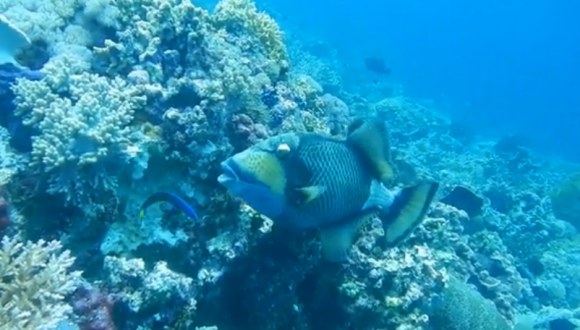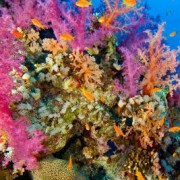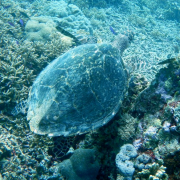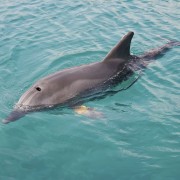About
A workshop and Working-group meetings
Dates: 22-26, June 2014
Location: Eilat (Red Sea), Israel
Workshop rationale
The Eilat workshop will be the kickoff meeting for a working group whose overall goal is to examine the use of ecological restoration in the marine realm to accelerate the recovery of marine ecosystems/populations or to initiate the recovery process in stagnant situations (e.g. alternative stable states). This workshop is envisioned as the first of three meetings to address this goal with specific objectives defined and delivered during the working group meetings. Each workshop will be paired with a field project that will tackle questions/tasks raised during the working group meetings.
Background
Marine ecosystems play a crucial role in supporting human well-being, from food supply and livelihoods to regulation of the Earth climate. As centuries of human activities have eroded the value of marine ecosystem services, the costs for humanity are getting severe. The expected outcome of the declining ecosystem services is that the emerging scientific discipline of Restoration Ecology will become a major focus of natural resource management and sustainable development (Millenn. Ecosyst. Assess. 2005). Restoration Ecology is defined as the science underlying concepts and tools needed to restore ecosystems (SER 2004). Restoration Ecology is still in its infancy and there is generally a wide gap between our needs and the supporting science; many of the reliable and effective tools by which to meet the vast challenges imposed by human impact have yet to be developed. The major challenges for Restoration Ecology of marine ecosystems include the multi-faceted nature of the issues, difficulty of delimiting project goals, limited evaluation procedures for restoration projects, and insufficient appropriate intervention tools. The path to progress in meeting the challenges of marine ecosystem restoration is to develop a broader multidisciplinary approach to reduce our significant gaps in knowledge and to develop effective methods for intervention.
The practical goal is to cultivate a framework for multidisciplinary science of ecological restoration of marine ecosystems and their services, focusing on three major restoration-related multidisciplinary aspects: (1) Development of effective restoration tools, (2) Framing viable approaches, which maximize chances of restoration success, (3) Searching for ways to make MER economically feasible and scalable. The planned multidisciplinary team is expected to expand the basis of restoration ecology as coherent cross-disciplinary, actionable science, incorporating biological and social sciences as well as policy and economics.
Tentative workshop tasks and topics: (initial, partial list)
- To compare marine, terrestrial and aquatic restoration projects, and define differences and gaps in marine restoration vs. to the latter two (i.e., assuming terrestrial and aquatic restoration is more advanced than marine, we can learn something from their successes and failures?).
- To identify causes of failure in past marine ecosystem restoration attempts
- To explore, identify and examine restoration tools that might be environmentally effective and economically feasible/affordable in large scales (scalable).
- Implementation of engineered marine structures (EMS) in ecological restoration of marine ecosystems
- Restoration and Protection': Designation of deteriorated reef sites as MPAs
- Scale issues in restoration projects
- Indications (standards?) of successful restoration projects?
Working group members (Eilat Workshop):
- Avigdor Abelson – Tel Aviv Univ., Israel
- Jonathan Belmaker – Tel Aviv Univ., Israel
- Steve Gaines – Univ. of California, Santa Barbara, USA
- Graham Edgar – Univ. of Tasmania, Australia
- Gesche Krause – Alfred-Wegner-Institut, Germany
- Mordechai Shechter - IDC, Israel
- Daniel reed - Univ. of California, Santa Barbara, USA
- Michael Beck – The Nature Conservancy, USA
- Laura Airoldi – Univ. of Bologna, Italy
- Peter Nelson – CFR-West, USA
- Robert Orth – VIMS, USA
- Gary Kendrick – Univ. of Western Australia, Australia
- Robert France – Dalhousie Univ., Canada
Additional working group members (will join next workshop):
- Hugh Possingham – Univ. of Queensland, Australia
- Ben Halpern - Univ. of California, Santa Barbara, USA
- James Aronson – CEFE/CNRS, France
- Shahid Naeem – Columbia Univ. NY, USA
- Paolo Guidetti – Univ. de Nice, France
- Lucy Emerton – Environment Management Group, Sri Lanka
- Susan Baker – Cardiff Univ., UK
- Hunter Lenihan - Univ. of California, Santa Barbara, USA
- Giacomo Bernardi - Univ. of California, Santa Cruz, USA
- Andreas Kunzmann – ZMT, Germany
Additional Speakers in the Eilat Workshop:
- Baruch Rinkevich – IOLR, Israel
- Nadav Shashar – Ben-Gurion Univ., Israel
- Shimrit Perkol-Finkel – SeArc, Israel
- Ido Sela – SeArc, Israel
- Yael Ben-Tzvi – OFRA, Israel
- Dror Zurel – MoE, Israel





